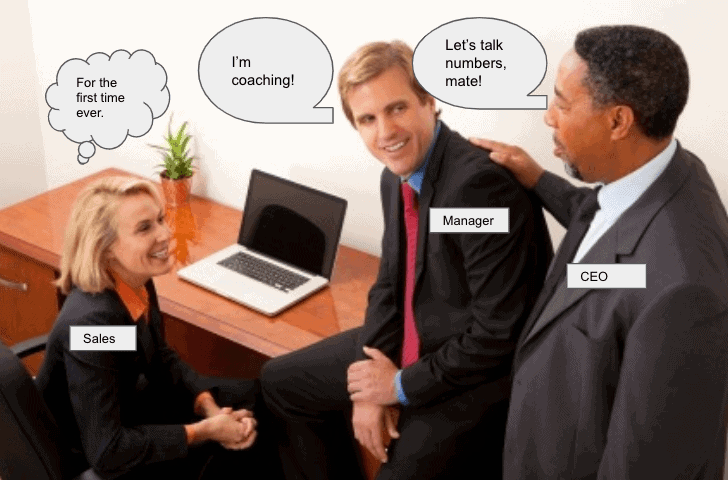Strong and weak link systems
Malcolm Gladwell's amazing podcast ‘Revisionist History’ showcases underappreciated topics and discusses them in a fascinating way. Episode 3 talks about the societal impact of donations given to elite universities by billionaires. The sports analogy that is used, is comparing the difference of impact that 'star players' have in their respective sports, basketball, and football. Basketball is a system where individual superstars like Michael Jordan can play in an average team and still bring home victory – a strong-link system. The strongest link determines the system's performance. In football, goals are usually scored after multiple uninterrupted passes that lead a striker, like Mo Salah to score (go, Liverpool). If there would be one bad player in the row of passing, the ball possession would switch sides. Football is a weak-link system – the weakest link determines the performance of the team.
Improving each system
If you are in a strong-link system, it does indeed make sense to collect funds to buy and enable a superstar that brings along more victories. If you are in a weak-link system, like football, it does not make sense to put Lionel Messi in an average team. One must raise the standard of the entire team evenly to get consistently better results.
Is sales a weak-link or strong-link system?
Specialized sales
Ben Cotton, who is doing sales enablement at Hubspot, wrote a great article about strong and weak-link system improvement at Hubspot and argues that sales at Hubspot is a weak-link system. Their sales organization is highly specialized according to Mark Roberge’s book ‘The Sales Acceleration Formula’:

This sales setup resembles the whiteboard drawings of football managers that explain how the ball can be passed most effectively to get a goal. If an SDR in the Hubspot model is not converting enough leads to opportunities, the whole sales process will be affected. Consequently, Hubspot’s enablement strategy focusses on those reps that were underperforming to raise their standards. Ben and his team achieved an extraordinary 31% increase in sales performance.
Full-cycle sales
On the other hand, I’d argue that full-cycle sales processes have actually more strong-link features than the specialized sales process at Hubspot. In a full cycle sales process the overall top-line company performance is not affected by a low-performer and by definition not affected by SDRs. On the contrary, in small sales teams of startups, I often see one sales rep contribute >50% of new business. Jason Lemkin's article echoes this observation and shows how A-player sales reps can be up to 9x better than C-players.

A valid short-term strategy could be to enable that sales rep to the fullest and direct all promising lead to her, which is what Lemkin is arguing. The latter shows 'strong-link thinking'.
Long-term strategy
Although specialized and full-cycle sales are different in nature it is wise to think of your sales team as a weak-link system in the long run. By doing so, you focus your attention on the middle of the pack, which is always more numerous than the high performers.

Tomasz Tunguz wrote a great article on this topic.
This strategy is right for multiple reasons:
1. It's enabling a more robust sales team setup and predictable performance
By allowing a greater number of reps to improve, you are not putting all eggs in one basket and counting on your high performers to not change jobs and/or suddenly get sick.
2. It is easier
Granted you will actually need to train more people. Nevertheless, you do know how to train them as your high performers have already shown what makes them successful. If you would only bet on enabling your top-performers to get even better, a lot of your efforts would be best-guesses as it would be unchartered territory.
What about the top and low performers?
It is foolish to exclude top performers from training efforts, as this lack of attention is often a churning cause. You should try to empower them even more and recognize their performance appropriately, whilst not diverting from your focus on the mid-performers.

Low-performers should be classified according to the matrix above. If the low performer is actually willing to improve, then create a structured training plan with a clear binary outcome (out or in). Those that are unwilling to improve, you should let go immediately. This topic is too large for this blog post, but I cannot stress enough that there must be consequences to underperformance, otherwise, the performance of your entire sales team will decrease. As Jocko Willink, author of Extreme Ownership said:
It's not about what you preach, it's what you tolerate.
Is sales management a weak or a strong-link system?
If we consider sales management to be interlinked with the sales team, then we can also apply the weak/strong-link system to sales management. The question is if the performance of a team is determined by its manager and my clear answer to this is: Yes.
Mike Wineberg, author of Sales Management. Simplified., states an expression that I wholeheartedly agree with:
"The level of the team rarely, if ever, exceeds the level of the leader."
What a statement and what an argument for thinking of sales management as a strong-link system. This has severe consequences:
- Sales team performance depends on sales management performance. Hence, don't only spend huge budgets to train your reps, but upgrade your sales leaders as well.
- Put massive importance on finding great sales managers
Want to learn more about appropriate training?
Get in touch via the following form:



